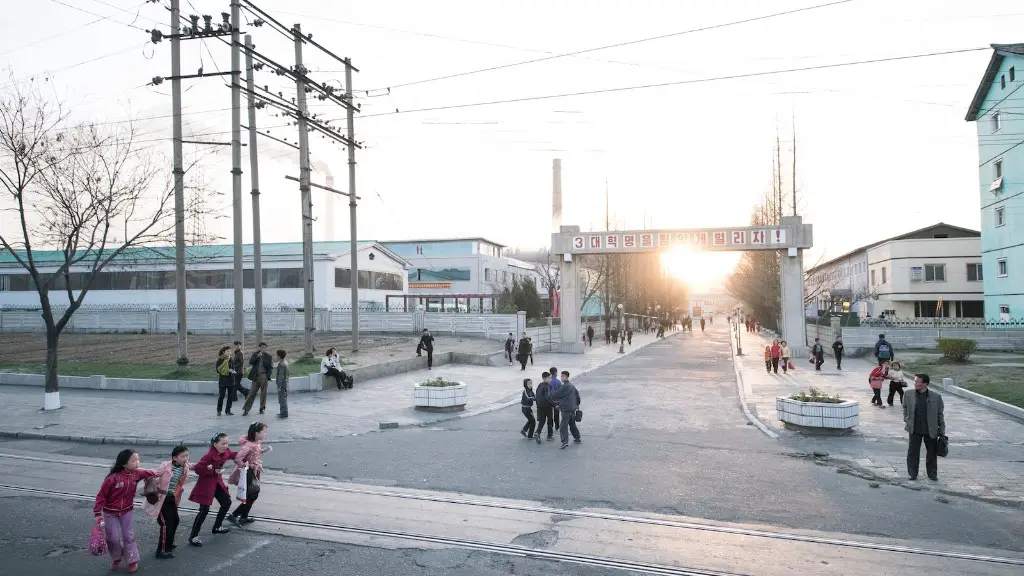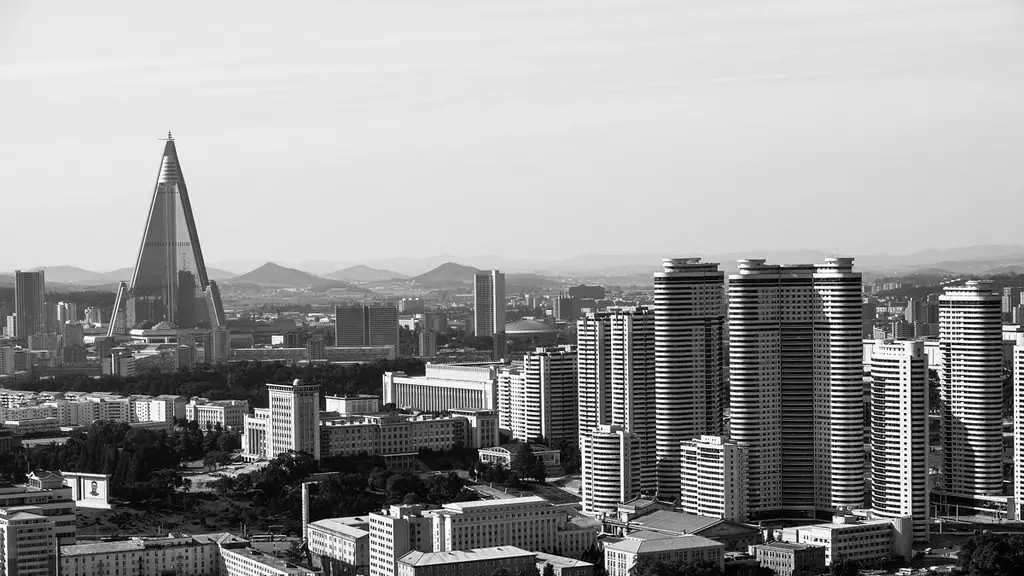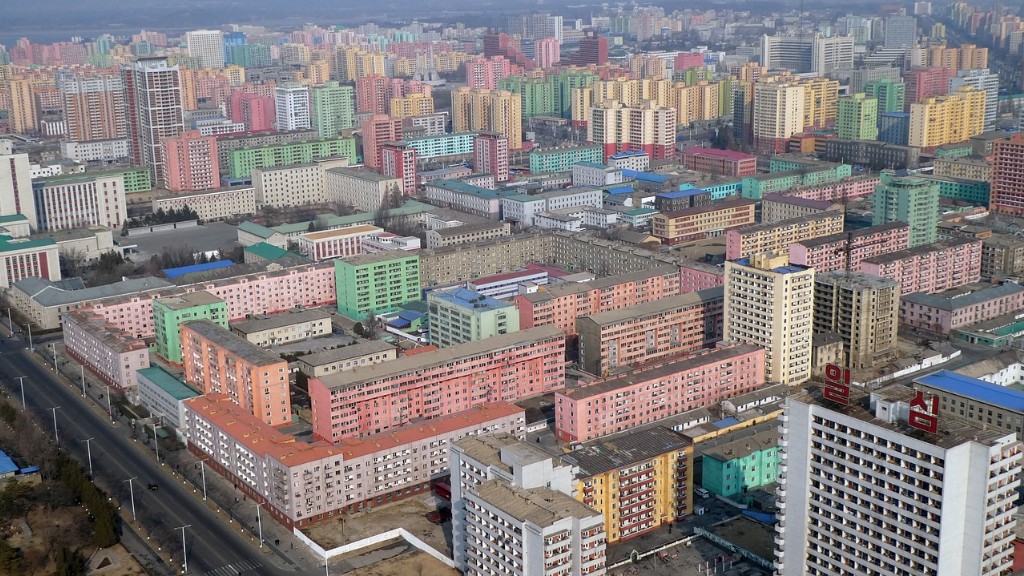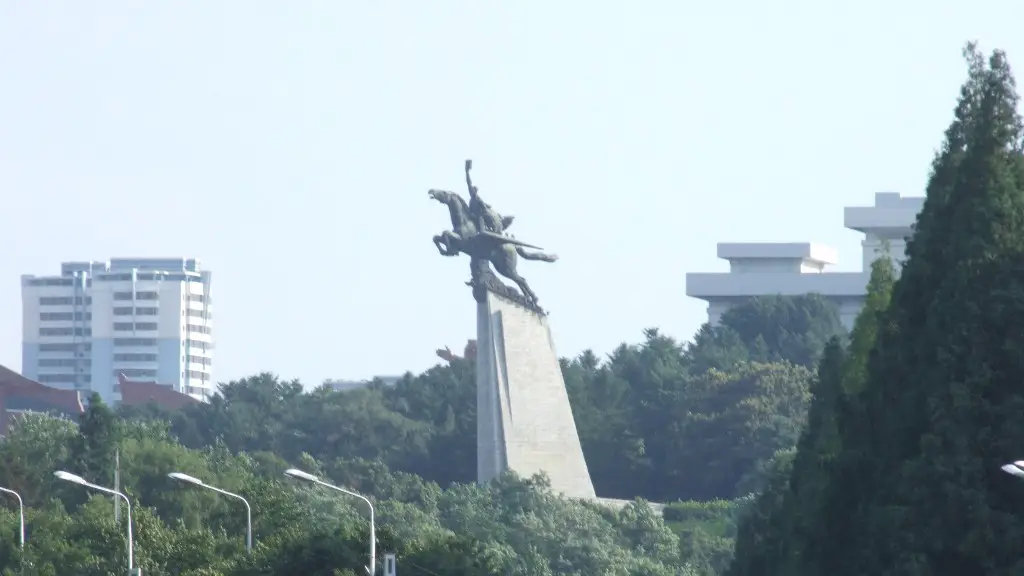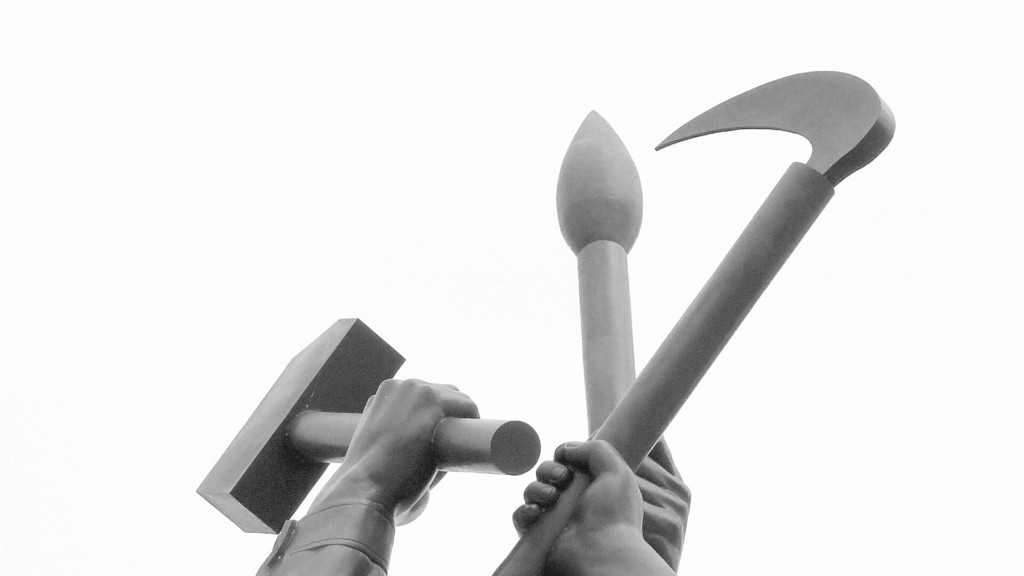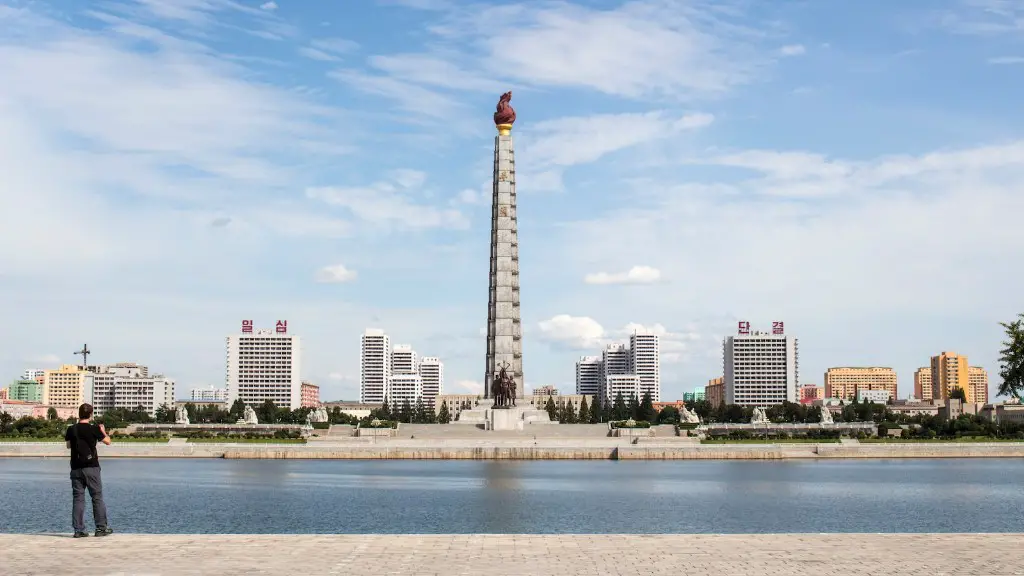The Democratic People’s Republic of Korea (DPRK) is the official name given to North Korea. Often referred to internationally as North Korea, the country remains a mysterious enigma to the rest of the world. A nation shrouded in secrecy, North Korea often appears in the headlines for its government’s highly controversial activities and lifestyle. So why is North Korea referred to as the DPRK?
In order to get to the bottom of the mystery of where North Korea’s official name comes from, it’s necessary to understand the nation’s revolutionary history. Since its creation in 1948, North Korea has been under the control of the Kim dynasty, following the country’s liberation from the Soviet Union and Japan at the end of the second world war. In 1945, Korea was divided into two separate countries, with the Soviet Union controlling the northern half which would later become North Korea, and the United States controlling the southern half, the Republic of Korea (ROK).
It wasn’t until 1948 that North Korea declared itself the Democratic People’s Republic of Korea. This official name was chosen by the country’s leadership to emphasise the nation’s emergence as a socialist state. In stark contrast, the Republic of Korea in the south adopted the name of South Korea as a way of displaying their commitment to democracy. The DPRK is the acronym for Democratic People’s Republic of Korea and this is the most commonly used term in official diplomatic circles when referring to genuine North Korean government and business.
However, the use of the acronym ‘DPRK’ has courted controversy in recent decades. North Korea has become notorious for its controversial practices, such as its awful human rights record and pursuit of nuclear weapons. This has led to many critics in the international community, including high-profile members of the United Nations, to denounce the DPRK and its leadership. The term ‘DPRK’ has become synonymous with several negative connotations, although essential to distinguish between the two Koreas.
The term ‘DPRK’ distinguishes North and South Korea by emphasizing the nation’s status as a socialist state. Even though North Korea is an officially designated socialist state and constitutionally holds state media and public property as national assets, the reality is that state ownership does not guarantee economic or social justice for the country’s citizens. Despite its official label, North Korea is largely authoritarian, with state-sponsored surveillance, torture, and a growing humanitarian crisis.
Economic Priorities
For the past decade, DPRK’s primary economic priority has been to promote economic growth. This growth has been hindered by an unprecedented level of international sanctions imposed on the country due to its pursuit of nuclear weapons. As a result, North Korea has had difficulty developing economically, with food shortages and high levels of inflation both major problems.
In recent years, much of North Korea’s focus has shifted away from its pursuit of nuclear weapons and instead focused on economic growth. North Korea’s government has implemented a series of economic reforms designed to reduce poverty and promote sustainable economic growth. The country has also sought to attract foreign investment, albeit limited, as well as strengthen ties with other countries in order to increase its global presence and access more resources.
Although the country’s economic reforms have brought some success, they have also led to further divisions in society. Many of the reforms implemented by the state have disproportionately benefited the wealthy elites, while the majority of the population remains impoverished.
Social Conditions
Social divisions have been exacerbated in recent years due to the government’s efforts to control the media, restrict communication and censor the internet. Many of the nation’s citizens are living in abject poverty, with little access to education, healthcare and other social services. The government has also implemented a strict system of censorship, banning any media perceived to be critical of the regime or their policies.
The government also maintains a restrictive state-controlled school system, designed to uphold the ideology of the state. In terms of healthcare, North Korea’s system is largely outdated and basic medical supplies are often scarce. This has created a system where the wealthy elite have access to better healthcare, while the rest of the population is left with basic treatments.
The lack of freedom and human rights has meant that many North Koreans have sought refuge in other countries in search of a better life. In addition, many North Koreans are currently trapped in China, unable to return home because of their illegal status.
International Relationships
In recent years, North Korea has sought to improve ties with other countries. In June 2018, North Korea and the United States held a summit in Singapore, where the two nations discussed the potential for a more cooperative future. Since then, there have been several high-level meetings between North Korea and the United States, as well as other countries.
The North Korean government has also sought to improve ties with South Korea. In 2018, North Korea and South Korea issued a joint statement, in which the two Koreas pledged to work together towards a more peaceful and prosperous future. This was a significant step forward in terms of international relations, and the 2018 summit between the leaders of the two countries was seen as a major diplomatic breakthrough.
The DPRK has also sought to strengthen ties with other countries in the region, such as Japan and China, as well as major international powers such as the United States. By attempting to build closer ties, North Korea hopes to build trust in the international community and gain access to more resources, whilst also seeking to expand its economic ties in order to foster economic growth. North Korea has also made a commitment to comply with international law and to adhere to the norms of the international community.
Political System
North Korea has a highly authoritarian system of government. This system of government has been in place since the country was founded in 1948 and has been largely unchanged since then. The country is led by the President, who is appointed by the Supreme People’s Assembly. The President is the head of the state and is responsible for all executive decisions.
The Supreme People’s Assembly is the highest legislative body in North Korea. It is composed of delegates from each province, and is responsible for creating and enacting laws. The Supreme People’s Assembly is elected for five-year terms, with elections held every three or four years. The Assembly meets several times a year and is the final authority for all government decisions.
The government’s primary focus is maintaining control over the population and upholding the state ideology. The country remains highly restrictive, with citizens restricted from accessing the internet or foreign media, as well as being denied some basic human rights. There are also frequent food shortages in the country, and the state has been reluctant to accept assistance from the international community.
Opinion of North Korea
Opinions of North Korea vary greatly among the international community. Some view the country with suspicion and distrust due to its efforts to acquire nuclear weapons, while others view North Korea with a certain level of sympathy due to its relative isolation and difficult economic conditions. In recent years, there has been an increased interest in the possibility of a peaceful solution to the Korean crisis, as well as a growing recognition of the plight of North Koreans.
The opinions of ordinary citizens vary greatly, with most placing their faith in the DPRK’s leadership to take the country in a better direction. Despite the lack of human rights, social divisions and economic hardships, there is still a sense of patriotism and loyalty among the citizens. This has been used by the government to maintain control, but for many it is a source of pride.
Ultimately, North Korea’s official name of ‘Democratic People’s Republic of Korea’ conveys its status as a socialist state, although the ideological goals of the state are often in stark contrast to the country’s actual social and economic reality. The country is an enigma to the rest of the world, and only time will tell if North Korea can truly achieve its true potential in terms of human rights, economic growth and international engagement.
Nuclear Weaponry
The development of nuclear weapons by North Korea has been a major source of tension in the region and around the world. North Korea’s pursuit of nuclear weapons is largely seen as an attempt to build up its military capabilities and strengthen its position on the international stage. Despite the efforts of the United States and other countries to persuade the DPRK to give up its nuclear ambitions, the country has continued to pursue its nuclear program.
The United States has accused North Korea of developing nuclear weapons to intimidate other nations, which is seen as a threat to global security. In response, the United States and its allies have imposed an unprecedented level of economic sanctions on North Korea in an effort to halt its nuclear pursuits. Despite the sanctions, North Korea has continued to develop its nuclear arsenal, which has resulted in a further deterioration of relations between North Korea and the international community.
Even though North Korea’s nuclear arsenal is a major point of tension between the country and the international community, it is not the only point of contention. The United States and its allies have expressed deep concern over North Korean human rights abuses, which have been ongoing for decades. In addition, North Korea has continued its repressive regime of censorship, denying access to the internet, foreign media and any criticism of the government.
Reach for Peace
In recent years, there have been some positive developments in terms of North Korea’s relationship with the outside world. North Korea and South Korea have made a commitment to work towards a better and more peaceful future, and North Korea has sought to improve its ties with the United States, Japan and China.
In spite of the ongoing tensions, there is still a possibility of peace between the Koreas. The current peace talks are a testament to that and while they may not resolve all the issues, they could be a starting point towards a more peaceful and prosperous future for the two countries. North Korea has stated its commitment to comply with international law and adhere to the norms of the international community, although it remains to be seen if this commitment will be met.
Moreover, the economic prospects of North Korea could be greatly improved by increased ties with the international community. Foreign investment, although still limited, could improve the country’s infrastructure and provide much needed resources to the population. In addition, the pursuit of diplomatic ties and economic reforms could go a long way towards improving the economic conditions of North Korea.
North Korea may still be shrouded in mystery, but with continued diplomatic efforts, there is still a chance of peace and prosperity for the people of the DPRK.
